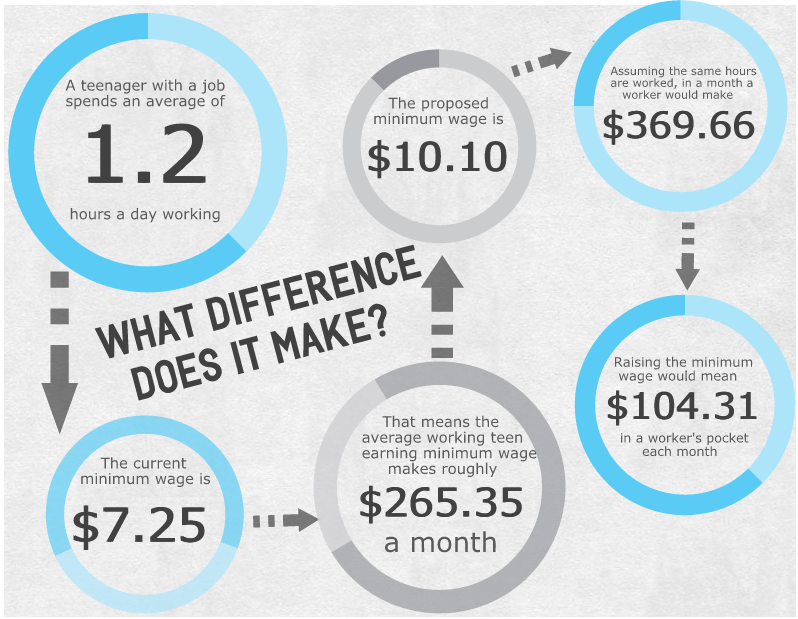What’s in a Dollar? The Proposed Minimum Wage Revolution

by Broderick Topil
In today’s economy, it is essential that every American has a well paying job in order to keep their family out of poverty and continue to save money in case of another recession. Unfortunately, though, millions of Americans are working full-time time jobs with only a “part-time” wage. “Part-time” wage refers to the 1.6 million Americans working for $7.25 an hour (the federal minimum wage)– and another 2 million plus Americans working below minimum wage all the way down to $2.13 an hour.
Currently, if an individual were to work 40 hours a week at minimum wage, they would fall just under the poverty line. By allowing these individuals to continue working for minimum wage, which proves to be unlivable by economic standards, we are deeming these jobs not worthy of the American standard of living.
The only way that the government has kept these millions of people alive and able to support their families is through programs such as food stamps, income tax credits, and Medicaid. The programs do show success, but with the recent cuts to the programs by Congress, especially affecting the food stamp program, than it is time that the President of the United States, or the Senate should work on either expanding these programs, or increase the amount of money in people’s pockets by raising the minimum wage.
Recently, serious talks of raising the minimum wage have begun in both Congress and the Senate. Both of these talks are led mainly by Democrats. Although, in the President’s State of the Union address on Jan. 28, Obama expressed that he will use his executive power to instantly increase the minimum wage of all federal employees from $7.25 to $10.10 an hour. Who does this affect? Solely the groups contracted by the federal government like construction workers and janitors.
In the State of the Union address, Obama once again expressed his desire to Congress, asking for a minimum wage increase to $10.10 by 2015. Unfortunately, though, the current House desires to have no part in creating legislation of this kind.
The fate of the millions of Americans earning minimum wage may soon change though, with the midterm elections coming up in November. Any candidate expressing interest in raising the minimum wage may see an advantage in the polls, due to the large number of Americans affected by this legislation.
With high hopes, 2014 may just be the year the federal minimum wage is raised drastically to meet the demands of our growing economy. All Americans can enjoy their right to economic freedom, but only if they are willing to reach for it.







